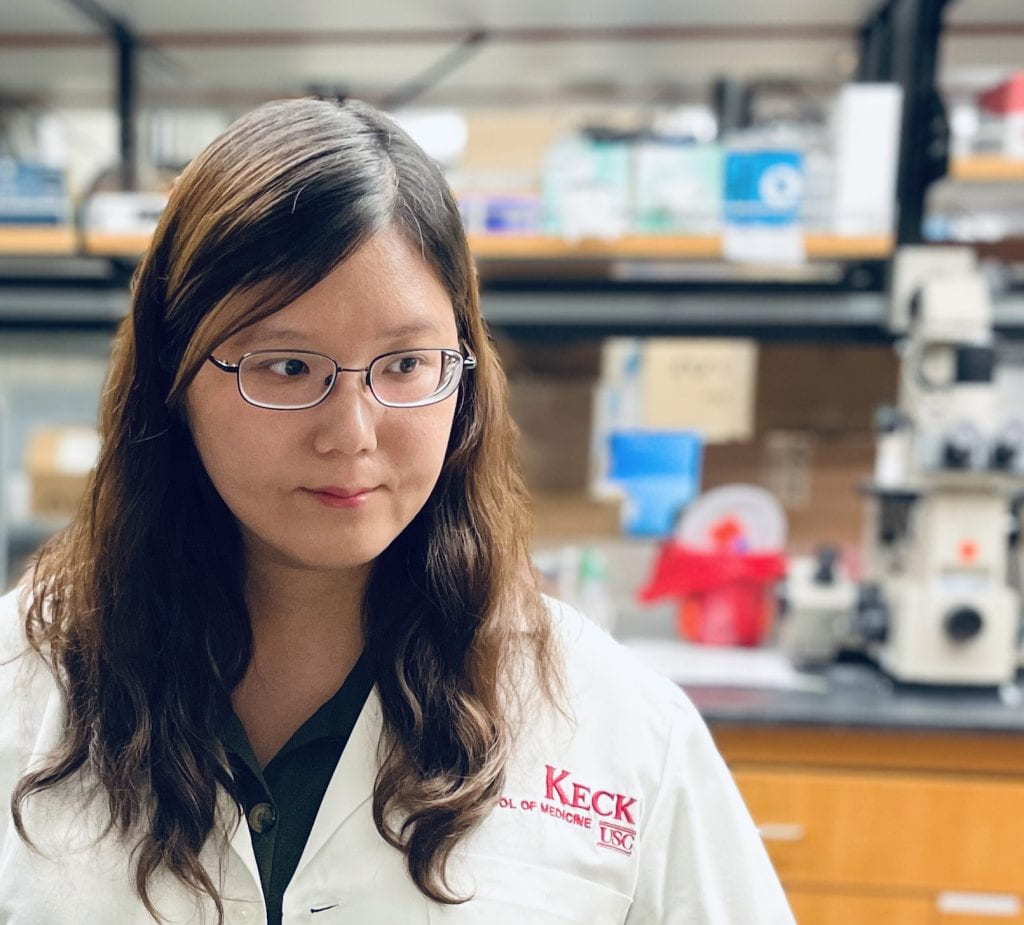October celebrates both ABSA International Biosafety Month and National Breast Cancer Awareness Month. In recognition of these preeminent campaigns, EH&S is highlighting the outstanding contributions of USC biomedical researchers in breast cancer research and pathogen research, in general.

Suhn K. Rhie, PhD – Department of Biochemistry and Molecular Medicine at Norris Comprehensive Cancer Center, Keck School of Medicine.
Understanding the mechanisms of gene expression regulation in normal and diseased cells (e.g., breast, prostate, lung, bladder, and brain cancer cells) is the central question for Dr. Rhie’s lab. She mainly focuses on four research areas (Regulatory Elements, Transcription Factors, Chromatin Interactions, and Post-Genome Wide Association Studies (GWASs)) to answer the question.
Dr. Rhie would like the community to know that cancer encompasses a wide range of subtypes, each characterized by its distinct biological features. Pinpointing changes in the 3D epigenome associated with these cancer subtypes and understanding how genes are regulated in disease will pave the way for innovative approaches in developing new biomarkers and therapeutic methods.
Dr. Rhie has received the Ethel Terry McCoy Award for Excellence in Chemistry and Biochemistry, Women for Change, and Career Development Award from National Cancer Institute (NCI). She is also selected as the NCI Early Investigator Advancement Program Scholar.
Her numerous publications are available at: https://sites.usc.edu/rhielab/publications/.

Hyungjin Eoh, DVM, PhD – Department of Molecular Microbiology and Immunology (Primary Affiliation) and Department of Ophthalmology (Second Affiliation), Keck School of Medicine.
Tuberculosis is a bacterial disease caused by Mycobacterium tuberculosis (Mtb) infection and kills 1.5 million people each year. It is the number one human killer among infectious diseases. Despite major advances in the field of mycobacterial pathogenesis and medicinal chemistry, only two chemical compounds have been approved as tuberculosis antibiotics in the past 25 years. To address this shortfall, Dr. Eoh submits that “[e]lucidation of new antibiotic targets of M. tuberculosis or host immune reprogramming will be the groundwork to discover new tuberculosis antibiotic regimen to improve our current chemotherapy.”
Dr. Eoh and his research team would like the community to know that his research focal points are a rich source of new anti-tuberculosis agents and conceptually novel diagnostic biomarkers. His team’s antibiotic candidates will simplify the current tuberculosis treatment regimen and drastically shorten the treatment duration, resulting in patients’ compliance and reduction of antibiotic resistance. Dr. Eoh’s lab research paradigm has a ripple effect on many antibiotic development platforms against other infectious diseases.
He has received multiple awards including Donald E.& Delia B. Baxter Foundation Award, L.K. Whittier Foundation Award, Wright Foundation Award, and American Lung Association Innovation Award.
His numerous publications are available at: https://www.ncbi.nlm.nih.gov/myncbi/hyungjin.eoh.2/bibliography/public/.